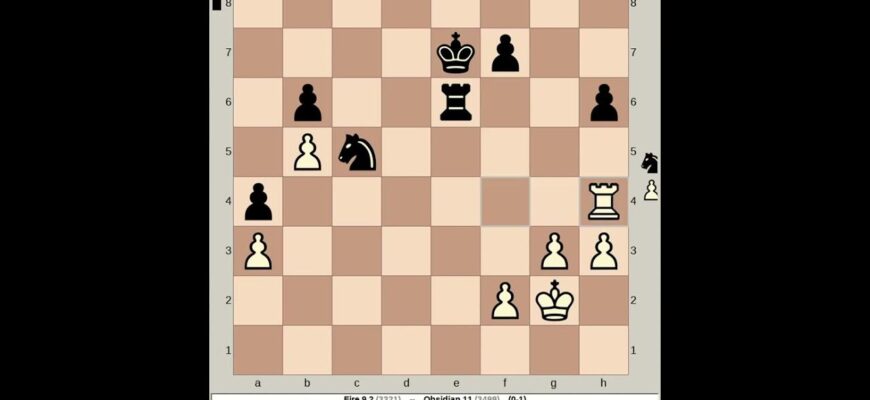Samarkand, a city steeped in millennia of history, once a vibrant crossroads of ancient empires and scholarly pursuits, is set to host a different kind of intellectual clash this September. The FIDE Grand Swiss, one of the most prestigious tournaments on the global chess calendar, arrives in Uzbekistan not just as a proving ground for elite players, but as a vivid stage for a phenomenon that has been quietly reshaping the royal game: the irresistible rise of its youngest prodigies.
The Unstoppable March of Youth
For decades, becoming a chess Grandmaster was largely seen as a culmination of years, often decades, of dedicated study and play. Bobby Fischer`s record in 1958, achieving the title at 15 years and six months, was groundbreaking. Yet, that benchmark now feels almost leisurely. Today, the age barrier continues to plummet with startling velocity. Judit Polgar, Ruslan Ponomariov, Sergey Karjakin, and most recently, Abhimanyu Mishra, who became a GM at a mere 12 years and four months, have systematically dismantled previous age expectations. In under 50 years, the threshold for grandmaster glory has plunged from mid-teens to barely pre-teen.
This trend isn`t limited to titles. Records for reaching elite ratings are falling just as fast. Türkiye`s Yağız Kaan Erdoğmuş surpassed a 2600 rating before turning 13, and in a truly epochal moment, Gukesh Dommaraju became the World Champion at just 18, having already been the youngest to cross the 2750 rating mark. Even younger talents like Britain`s 10-year-old Bodhana Sivanandan and the U.S.`s 10-year-old Keya Iha are making headlines by defeating Grandmasters. One might wonder if the venerable masters of yore are starting to feel a generational chill, as their carefully constructed strategic fortresses are being stormed by players who might still be doing their multiplication tables.
Why So Young, So Fast?
What fuels this unprecedented acceleration of talent? It`s a confluence of factors. The digital age has democratized chess knowledge, with sophisticated engines and online databases offering unparalleled analytical tools that were once the exclusive domain of national chess federations. Early exposure, often starting in kindergartens, combined with increasingly specialized coaching and parental or state support, creates a fertile ground for rapid development. Online platforms provide limitless opportunities for practice, competitive play, and learning from top-tier players around the clock. The game itself hasn`t changed, but the ecosystem around it has, fostering an environment where talent can blossom with astonishing speed.
Samarkand: A Crucible of Talent
Against this backdrop, the FIDE Grand Swiss in Samarkand becomes more than just a tournament; it`s a battleground for the future of chess. This 11-round Swiss system event, known for its demanding format, gathers the world`s best, and it`s here that the youthful energy will collide with seasoned experience. For the young players, it`s a chance to prove that their meteoric rise is sustainable and that they can contend with the established elite under immense pressure. For the older guard, it`s a test of resilience, adapting to the relentless, often unconventional, play of their younger counterparts.
The city of Samarkand itself adds a poetic layer to this narrative. Here, in a place that witnessed the grandeur of Tamerlane and the intellectual fervor of Ulugbek, an ancient game sees its future being forged. The silent stone walls and bustling bazaars will soon echo with the rapid clicking of chess clocks, as new legends begin their ascent.
Faces of the Future: Young Stars to Watch
Among the formidable field, several young talents stand out, embodying this generational shift:

Volodar Murzin: A name that resonates after his World Rapid Championship win.

Yağız Kaan Erdoğmuş: The youngest ever to cross 2600 ELO and a true prodigy.

Abhimanyu Mishra: The record-holder for the youngest Grandmaster title.
In the Open section, names like Volodar Murzin (19), who sensationally won the World Rapid Championship, and Yağız Kaan Erdoğmuş (14), already holding two spectacular world records, will be keenly watched. Abhimanyu Mishra (15), the youngest GM in history, seeks a breakthrough on the major international stage. These players, alongside others like Raunak Sadhwani, Ediz Gürel, and Marc`Andria Maurizzi, represent a collective force that threatens to rewrite the global rankings.

Lu Miaoyi: The reigning Chinese women’s national champion.

Teodora Injac: Fresh off a European Chess Championship victory.
The Women`s section is equally vibrant. Keep an eye on Lu Miaoyi (15), China’s reigning national champion, and Teodora Injac (25), who recently secured the Women`s European Chess Championship. Uzbekistan`s own hope, Afruza Khamdamova (18), a two-time World Youth Champion, will carry the expectations of her home crowd. These young women are not just competing for titles; they are charting new paths for female representation at the highest levels of the game.
The Grand Swiss Legacy
The FIDE Grand Swiss is a critical stepping stone, offering direct qualification spots to the prestigious Candidates Tournament, the gateway to a World Championship match. For the young titans, this means not just proving their mettle, but potentially fast-tracking their journey to the very top. Samarkand will not just be another entry in the chess history books; it will be remembered as a pivotal moment where the ancient game truly embraced its youthful revolution. The question isn`t *if* these young players will dominate, but *when*, and whether the Grand Swiss will be the very tournament that announces their full arrival to the world.







